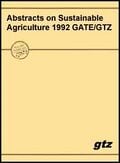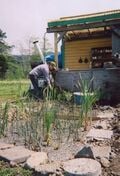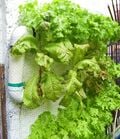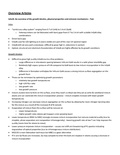Create the page "Chemical elements" on this wiki! See also the search results found.
- Nutrients are chemical elements and compounds found in the environment that plants and animals need to grow and survive. For water-quality investigations771 bytes (94 words) - 14:20, 27 March 2024
- exited state to a more stable state, similar to the emission lines of chemical elements caused by electrons moving from one quantized energy level to another1 KB (190 words) - 17:22, 7 August 2023
- plants require 16 chemical elements to thrive, all of which can be delivered without the use of soil. Instead, these chemical elements or “plant nutrients”4 KB (561 words) - 14:00, 18 August 2023
- Page data Keywords chemical elements, metalloids License CC-BY-SA-3.0 Language English (en) Related 0 subpages, 7 pages link here Impact 455 page views3 KB (347 words) - 07:11, 26 March 2024
- ("geo-") parts of an ecosystem. biogeochemical cyclesW - the movement of chemical elements between organisms and non-living components of the atmosphere, aquatic72 KB (9,433 words) - 15:28, 23 October 2023
- Fertilizers (section Chemical fertilisers)spread widely. A plant absorbs CO2, H20, minerals (main elements: N, S, K, Ca, P, Mg,trace elements: Fe, Zn, Cu, Mn, Mo, B, other:Cl, Na, Si, Al) fosfates19 KB (1,754 words) - 14:56, 23 October 2023
- LIBS Core Scanner Review (section Laser-induced breakdown spectroscopy – An emerging chemical sensor technology for real-time field-portable, geochemical, mineralogical, and environmental applications)at very high resolution (0.1 nm) of all elements in any unknown target material because all chemical elements emit in the 200–980 nm spectral region. This31 KB (4,186 words) - 13:24, 14 April 2023
- Montastraea annularis from the Florida reef tract. The relative abundance of chemical elements, particularly metals, has been used to distinguish soil derived from18 KB (2,413 words) - 03:06, 1 March 2024
- Carbon (category Chemical substances)Carbon (C), nonmetallic chemical element in Group 14 (IVa) of the periodic table. Although widely distributed in nature, carbon is not particularly plentiful—it1 KB (130 words) - 10:45, 29 March 2024
- community of living plants and animals as it interacts with its physical, chemical, meteorological and geological setting. When viewed together as a whole2 KB (336 words) - 21:46, 9 August 2023
- combustion engines as well as hydrogen fuel cells. It can be produced using a chemical process or a biological process (most commonly from waste organic materials5 KB (713 words) - 23:08, 16 April 2024
- tanks, it is a highly effective purification process, and there is less chemical and energy use required. In our case the majority of water used on the13 KB (2,300 words) - 16:39, 29 January 2024
- have: any pollutants in the sky, dust particles, tar on roofs, and any chemical products that may be used for anything upon/within the catchment surface6 KB (1,213 words) - 15:05, 21 March 2024
- and 6 micro elements. The 6 macro elements are nitrogen(N), phosphorous(P), potassium (K), calcium, magnesium, and sulphur. The 6 micro elements are iron10 KB (1,408 words) - 14:27, 23 October 2023
- cyclingW (ie composting,...), no or reduced chemical fertilizer applications, no or reduced reduced chemical pesticide application, biological pest control34 KB (3,789 words) - 01:43, 10 April 2024
- preventing massive famine and maintaining human civilization. Furthermore, elements of alternative foods may be applicable to non-catastrophe times, such growing2 KB (665 words) - 15:14, 23 February 2024
 Abstracts on Sustainable Agriculture/Abstracts on seed production (section 5. Seed enrichment with trace elements.) long stems to facilitate handling and reduce moisture loss. - Chemical treatment: Chemical treatment of stakes for pest control and protection against soil-and20 KB (3,138 words) - 19:34, 9 December 2023
Abstracts on Sustainable Agriculture/Abstracts on seed production (section 5. Seed enrichment with trace elements.) long stems to facilitate handling and reduce moisture loss. - Chemical treatment: Chemical treatment of stakes for pest control and protection against soil-and20 KB (3,138 words) - 19:34, 9 December 2023- proprietary commercial software. The new process identifies all of the toxic elements the previous process identified with more detailed information than the3 KB (713 words) - 13:53, 28 February 2024
- gallium nitride (InGaN) is a III-N type semiconductor material, meaning elements from group III are combined with nitrogen to produce a semiconductor, that26 KB (3,519 words) - 11:59, 28 February 2024
- [D. Van Nostrand & Co.] and is Wonderful: " The earliest known books on chemical topics were written in Alexandria, Egypt, during the Hellenic age. The2 KB (267 words) - 12:11, 10 June 2023







